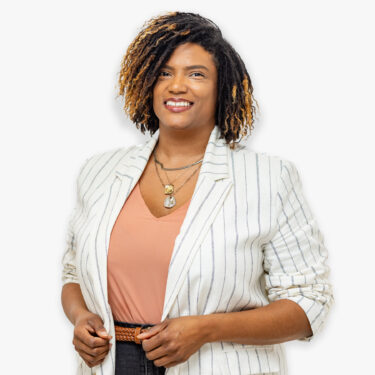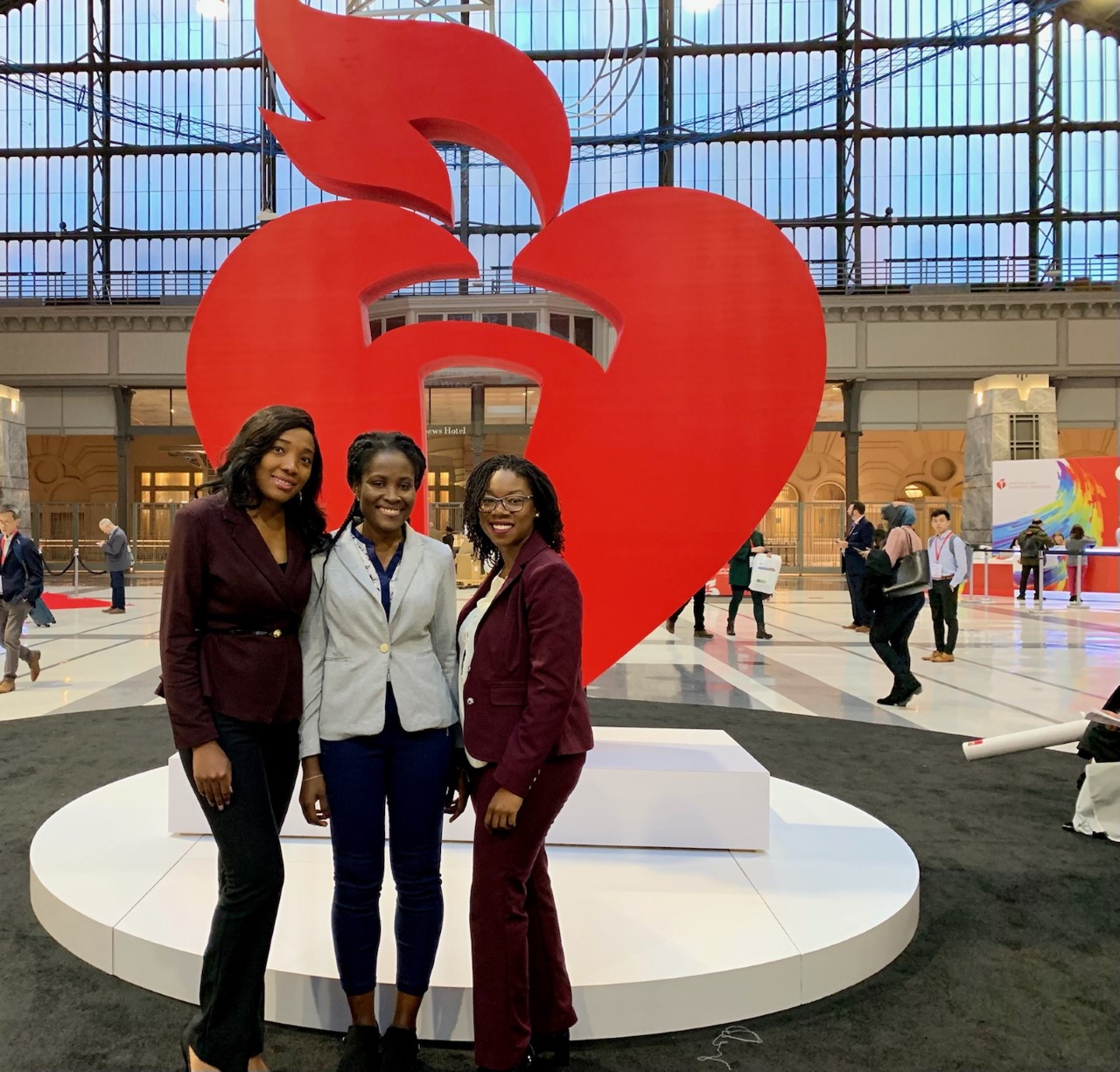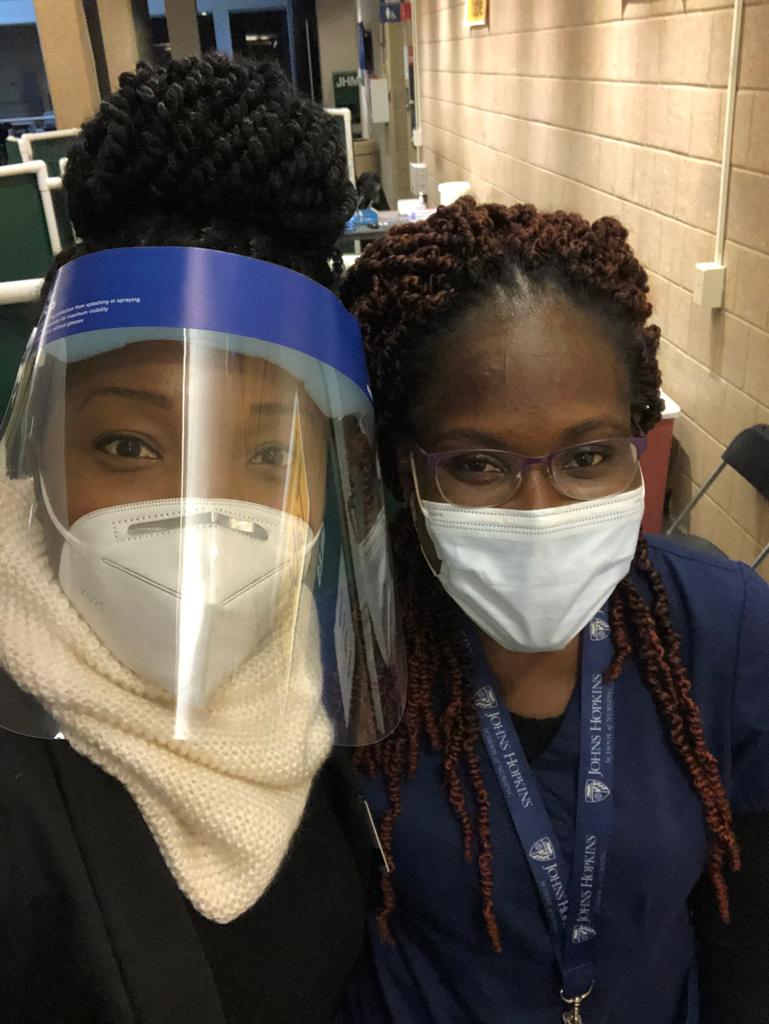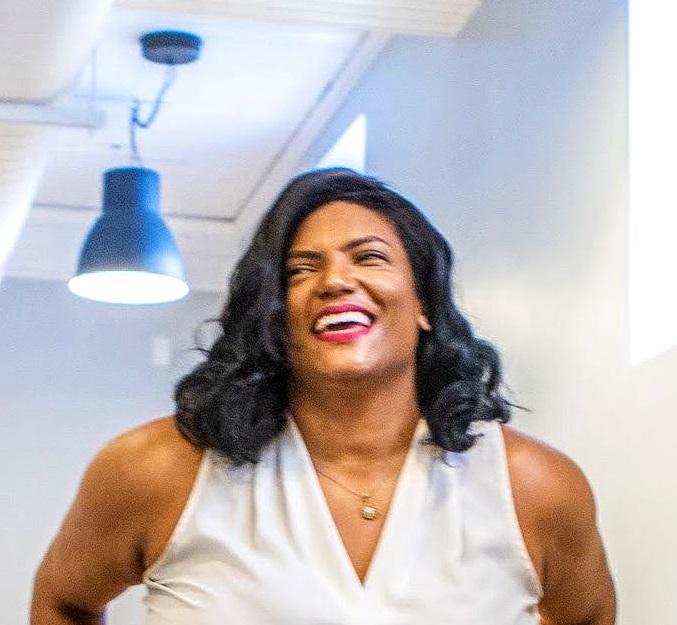“We’ve come a long way.”
“We’ve come a long way,” remarks Dr. Yvonne Commodore Mensah, now an assistant professor. “Dr. Vinciya Pandian was the only other person of color when I started my PhD in Nursing at Johns Hopkins in 2010.”
In 2019’s “What Makes a Mentor,” we learned that Dr. Yvonne Commodore Mensah (from Ghana) and Dr. Carmen Alvarez (from Belize) share a mentor in Dr. Lisa Cooper, Bloomberg Distinguished Professor (who is from Liberia). However, Dr. Commodore-Mensah and Dr. Alvarez are substantial scientists, researchers and, in Dr. Commodore-Mensah’s case, epidemiologists in their own right.
Now they guide the next generation of emerging scientists—with special interest toward mentees of color.
That’s because sheer numbers aren’t the whole story of diversity, equity, and inclusion. In 2018-2019, about 15,000 Black Americans earned PhDs, about 14,000 Hispanic or Latino Americans, and just 720 American Indians — compared to over 100,000 white Americans.
We have long known how mentors introduce junior researchers to new opportunities and impact quality science. Among researchers of color and women, they are also critical for sponsorship and in building the fortitude to navigate spaces traditionally walled off and reserved for white men.
Meet Dr. Commodore-Mensah and her mentees: Dr. Ruth-Alma Turkson-Ocran and Bunmi Ogungbe, PhD student
“Yvonne was always asking me ‘when are you going to come to Hopkins and get your PhD?’” laughs Dr. Ruth-Alma Turkson-Ocran.
They’re the same age – they are also both from Ghana, went to the same high school, and came (unknowingly) to the U.S. in the same year to become nurses. Dr. Commodore Mensah traveled a more direct research path however, while Dr. Turkson-Ocran became a nurse practitioner first. She earned her PhD at the Johns Hopkins School of Nursing in 2019 and was a post-doc at Johns Hopkins School of Medicine until summer 2021, when she became an instructor of medicine at the Beth Israel Deaconess Medical Center and Harvard Medical School.
On the other hand… “I found and reached out to Yvonne when I began to explore doctoral programs,” Bunmi Ogungbe says. Bunmi is from Nigeria. “She was one of the first people investigating cardiovascular disease among African immigrant populations.”
The COVID-19 curveball
Heart disease and African immigrant health are interests all three women share. In fact, Bunmi began the PhD program at Johns Hopkins in 2019 intending to investigate cardiovascular disease medication adherence in Ghana, working through an existing study by Dr. Commodore Mensah. But then COVID-19 threw her work a curveball.
Grounded, with travel unsafe, Bunmi conferred with Dr. Commodore Mensah and additional mentors, including former dean Patricia Davidson, Dr. Cheryl Dennison Himmelfarb, and Dr. Jason Farley, and determined to take her research in a new direction: examining biomarkers that indicate an injury to the heart, to determine the long-term cardiovascular effects of COVID-19 among Baltimore City residents.
Basic science research among African Americans with Dr. Jason Farley is a far cry from psychosocial research among Ghanaian people with Dr. Commodore Mensah – but both are matters of the heart.
“Dean Davidson advised me that part of the journey is knowing when to pivot and take advantage of emerging opportunities.”
Bunmi Ogungbe
“Dean Davidson advised me that part of the journey is knowing when to pivot and take advantage of emerging opportunities,” Bunmi says. “Yvonne helped me work through such a big change. She has connected me with so many mentors and sponsors, and brought me into the spaces that matter.”
“It’s really interesting when the mentee takes a slightly different path.”
Dr. Yvonne Commodore Mensah.
Mentoring relationships foster bidirectional learning
“It’s really interesting when the mentee takes a slightly different path. There is mutual learning that enhances our skills and knowledge,” says Dr. Commodore Mensah. “After working with Bunmi I was asked to give a presentation on cardiovascular disease and COVID. And Ruth-Alma is my tech person.”
As faculty at the Beth Israel Deaconess Medical Center and Harvard Medical School, Dr. Turkson-Ocran gets to explore her interest in technology with projects investigating blood pressure at home, ambulatory blood pressure (meaning tracking blood pressure over a 24-hour period), and exploring how to use machine learning to examine blood pressure. Incredibly, information on blood pressure from wearable devices could be actionable in as little as five years.
With the interview process for her faculty position fresh in mind, Dr. Turkson-Ocran reflects on Dr. Commodore Mensah’s generosity.
“Yvonne has constantly sponsored me, encouraged me to take on responsibilities I didn’t realize I was ready for, and introduced me, even connecting me with Dr. Lisa Cooper, who helped recommend me for my faculty position.” She continues, “It’s empowering to work on a multicultural team, yet, as underrepresented women in health and academia, there is something to be said for having someone who looks like me there to help raise me up. It tamps down imposter syndrome and reinforces that this path is truly meant for me.”
“There is this façade of scarcity in academia,” Bunmi says. “People feel the need to hoard resources, opportunities, networks. Yvonne doesn’t do that.”
“You don’t lose anything by being kind.’ Dean Davidson used to say that, and I’ve been so fortunate with all my mentors – with Dr. Lisa Cooper, Dr. Dennison Himmelfarb and more — that I can’t help but pass it on,” says Dr. Commodore Mensah.
Stay tuned: A talk with Dr. Carmen Alvarez and her mentees Nadia Andrade and Owen Smith is coming September 2021.
Read more:
- What Makes a Mentor?
- From Implementation to Discovery
- Heart Disease’s Global Fingerprints
- The Center for Cardiovascular and Chronic Care Launches New Health Care Outlook Video Series
- Women Between 18 and 44 Are at Risk for Hypertension—And They’re Less Aware of It Than They Were 10 Years Ago
- Black Women and Matters of the Heart




